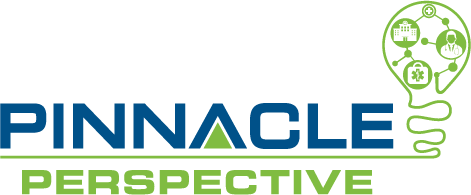
Responsible AI in Healthcare: Ethical Considerations While Navigating the Moral Maze
Introduction
In the labyrinthine world of healthcare, Artificial Intelligence (AI) is the Minotaur that promises both mighty solutions and moral conundrums. But before tackling these head-on, let’s take a page—or several—from Eric Topol’s insightful book, Deep Medicine. Topol offers a profound narrative on how AI can deepen and humanize the patient-provider relationship, not by replacing the clinician but by freeing them to operate at their empathetic best. The book delves into the potential of AI to transform healthcare through personalization, efficiency, and a renaissance of the care in healthcare, all while navigating the complexities of big data and the very human concerns that come with it.
Embarking on a journey through the moral maze of AI in healthcare, remember what Uncle Ben told Peter Parker, “With great power comes great responsibility.” This article is not recommending a future where robots replace providers. Instead, it’s delving into the practical magic of AI and how it’s changing the stethoscope game. From virtual health assistants to algorithms that can predict health events before they happen, this article will discuss how responsible AI in healthcare may look and explore ideas on how it can best serve patients and providers.
Get ready for a thought-provoking exploration, sprinkled with a sense of humor to keep your neurons entertained and engaged.
The Promise of AI: A Panacea or Pandora’s Box?
Linking AI in healthcare to a family member coming over for a holiday dinner, for example, has the potential to either spice up the evening or burn down the kitchen. On one hand, AI promises to streamline processes, improve diagnostic accuracy, and personalize patient care, effectively bringing a Swiss Army knife to a butter-knife fight. On the other hand, it flirts with ethical issues such as privacy concerns, consent, and the risk of dehumanizing patient care. So, the question stands: Is AI the panacea we’ve been waiting for, or is it Pandora’s box, teeming with ethical quandaries?
Personalization vs. Privacy
The allure of AI-driven healthcare is its ability to tailor treatments as if they were made-to-measure suits. However, this bespoke healthcare experience often requires intimate knowledge of the wearer – or in this case, the patient. The privacy of patient data is the new battleground, and AI is both the potential invader and the guardian. How does one ensure that AI keeps its prying algorithms away from the cookie jar of personal data? It’s a digital tightrope walk between benefit and risk, and no one wants to take a fall without a net.
Bias: The Ghost in the Machine
Bias in AI is like a ghost in the machine; just because you can’t see it, or have Carol Anne telling you “They’re here,” doesn’t mean it’s not there. AI is only as unbiased as the data it’s fed, and having a clear understanding of the impact or implications of its dataset and its structure will be vital moving forward. The ethical dilemma arises when these biases lead to disparities in patient care. AI that recommends yoga to a patient because it mistook a data point might be funny, but one that provides subpar care due to inherent biases is not. Tackling these spectral biases requires a Ghostbuster-like approach – understanding, transparency, and perhaps a proton pack of robust algorithms.
The Empathy Quotient: Keeping Healthcare Human
Healthcare is as much about healing hearts as it is about treating them. As AI takes on more roles, from diagnostician to therapist, one must consider, Can AI emulate the empathetic touch of a human caregiver, or is it as cold as a stethoscope on bare skin? While AI can process data at inhuman speeds, the fear of a robotic healthcare experience that leaves patients feeling more like a number than a name is a genuine concern. The challenge is to harness AI’s efficiency without turning the art of healing into an assembly line of impersonal interactions.
Navigating the Maze: Ethical Frameworks and AI
As one wanders through this moral maze, it’s clear that without an ethical compass, they might just end up walking in circles. Ethical frameworks for AI in healthcare need to be as dynamic as the technology itself, with checkpoints that ensure respect for patient autonomy, justice, and beneficence are not lost in translation as binary codes.
Accountability: Who Pulls the Strings?
In the puppet show of AI-driven healthcare, it’s crucial to know who’s pulling the strings. Accountability in AI isn’t just about pointing fingers when things go awry; it’s about ensuring there’s a human behind every decision, ready to take responsibility. Thorough discussion and transparent understanding are essential to gain buy-in from healthcare providers, who need to be on board with using AI in treating their patients.
The Regulatory Tightrope
In the world of AI-driven healthcare, regulations are like parents trying to understand the latest social media trend – they’re making a valiant effort, but by the time they’ve got it down, the kids have already moved on to the next big thing. The impact of President Biden’s Executive Order on Safe, Secure, and Trustworthy AI on healthcare is still to be determined, but prioritizing patient and provider rights will be a key discussion point within the industry for the foreseeable future. Striking a balance between fostering innovation and ensuring safety is the regulatory tightrope to be mastered. It’s about protecting patients and providers without stifling the creative spark that drives progress.
Conclusion
Standing at the crossroads of healthcare’s future, the journey with AI is poised to be as thrilling as it is thorny. Navigating the ethical considerations is not just about avoiding pitfalls, but also about paving a path that improves quality outcomes, strengthens provider-patient relationships, and better supports clinical and administrative workflows. It’s about making sure that a path forward with technology does not leave morals behind. And while the path forward is still unclear, being armed with the right questions and a moral compass will hopefully lead to a road that points true north.
For more information, please contact Director Zach Maher at ZMaher@AskPHC.com or 303-801-0131 or Brand Ambassador/Business Development Director John Carter at JCarter@AskPHC.com or 720-598-1443.



